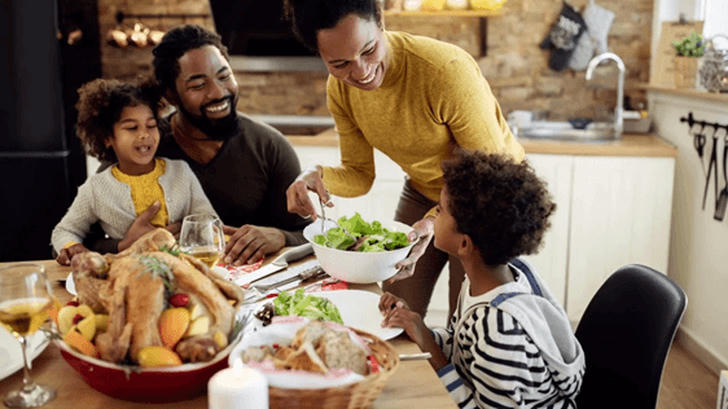5 Small Things To Build Better Eating Habits In Your Kids
Building a healthy relationship with food is a lifelong journey that begins at the table as a child. No matter what's on the menu, every parent seems to worry about whether their child's picky eating habits will hurt them as they mature. While this developmental stage is normal, practicing patience with a child growing into taste buds can be a challenge. To foster a positive mindset in your child's eating habits, here are some tips to bring at mealtime and beyond.
1. Get rid of stress

Most parents can relate to struggles with the picky eating stage. While getting young kids to eat vegetables is often an uphill battle, many experts recommend taking a neutral approach to mealtimes to help kids draw their own conclusions about the foods they're eating. Maintain a positive environment around food and try to let go of the pressure or punishment, reward and negotiation tactics that many parents do.
2. Talk about food

Rather than negotiating or directly fighting over healthy foods at the dinner table, parents need to establish lines of communication with their children early on to create a positive dynamic around food. Experts advise parents to help children identify hunger and satiety at an early age and encourage conversations about those feelings. "About how you feel after eating, do you like food, what do you like, how your body feels when you eat cookies as a snack." These conversations can help children align with their body's signals about appetite.
3. Offer multiple options during the week

Children are very good at feeding themselves with a wide variety of food and a pleasant environment. Over time, they learn to try and enjoy food and develop a wider range of eating habits. Take on the challenge of picky eaters by putting a range of different foods, flavors and textures on the table at every meal. Offer a variety of options to allow your child's curiosity to slowly fill their plates over time. It's also a good idea to try and get creative if you have time. For example, cauliflower soup, cauliflower dip, roasted cauliflower, stir fried cauliflower, and many different ways.
4. Bring the kids into the kitchen

As children reach school age, as their curiosity about food grows, many typically enjoy getting involved in cooking and baking. Getting kids to cook together -- even if it's as simple as stirring a mixture or adding ingredients -- can give them a new appreciation for what doesn't taste good on the table. Cooking can be an excellent tool for exploring food because it allows kids to take control of some aspect of the meal. This shared experience, in turn, can create a positive relationship with food, as pride and fulfillment are associated with mealtimes.
5. Set an example

If a parent has been struggling with food, whether it's dieting or overeating, or being extremely fussy about food, any food struggles on their own will be reflected on their children. It is important for parents to develop a positive relationship with food themselves. Or at least pretend it until they do, and try to be a positive role model around food.

